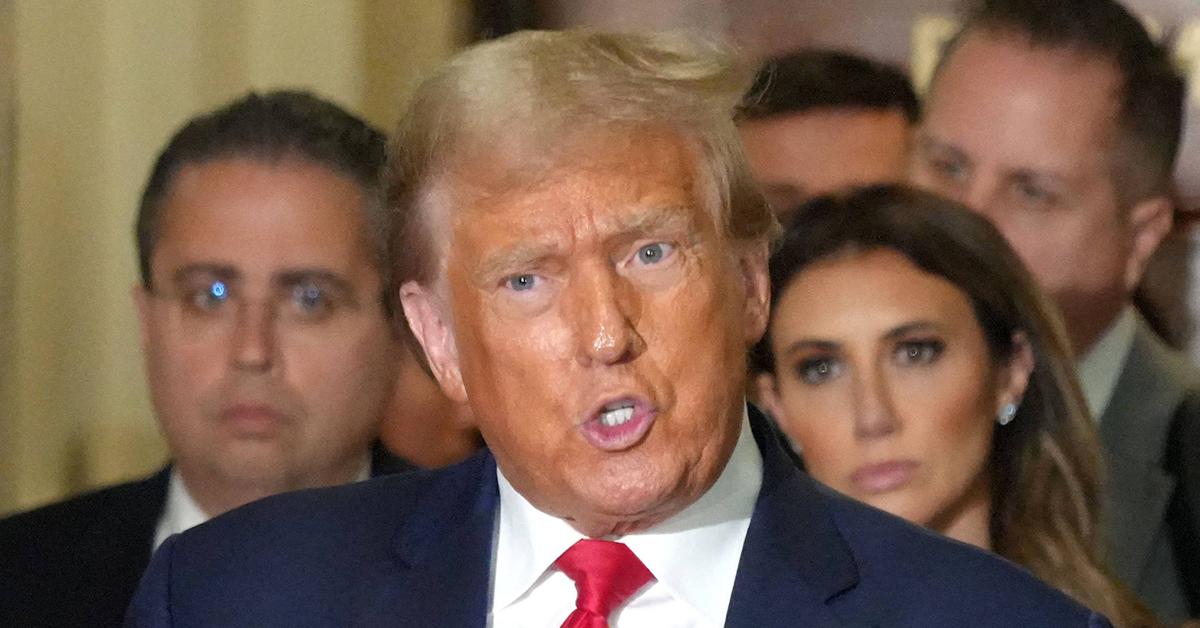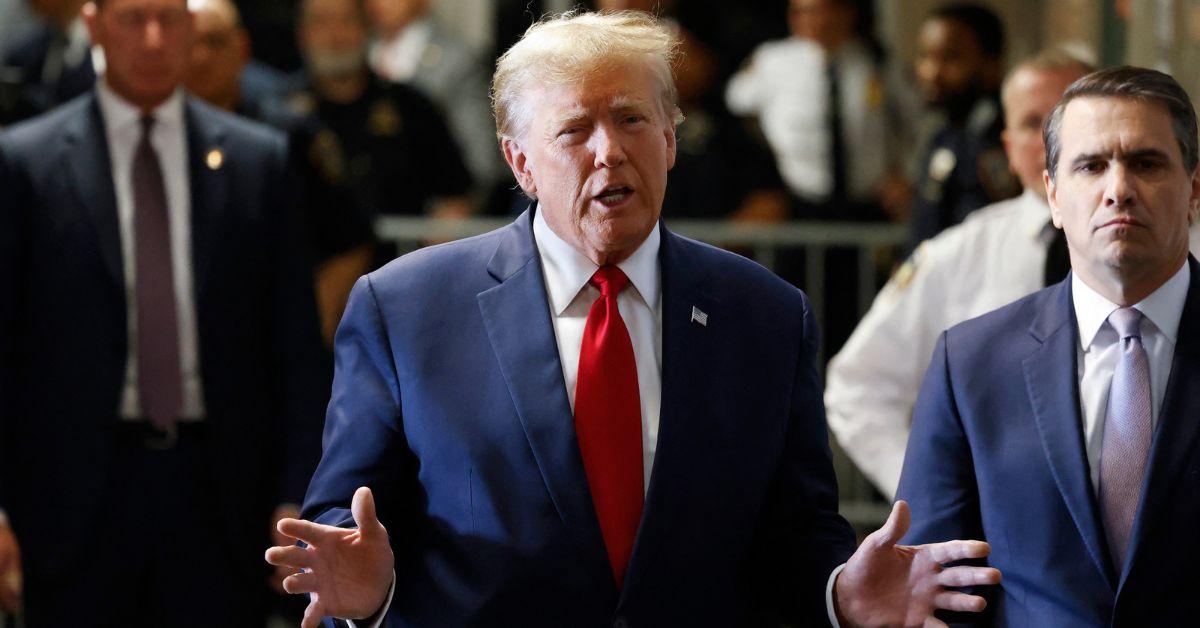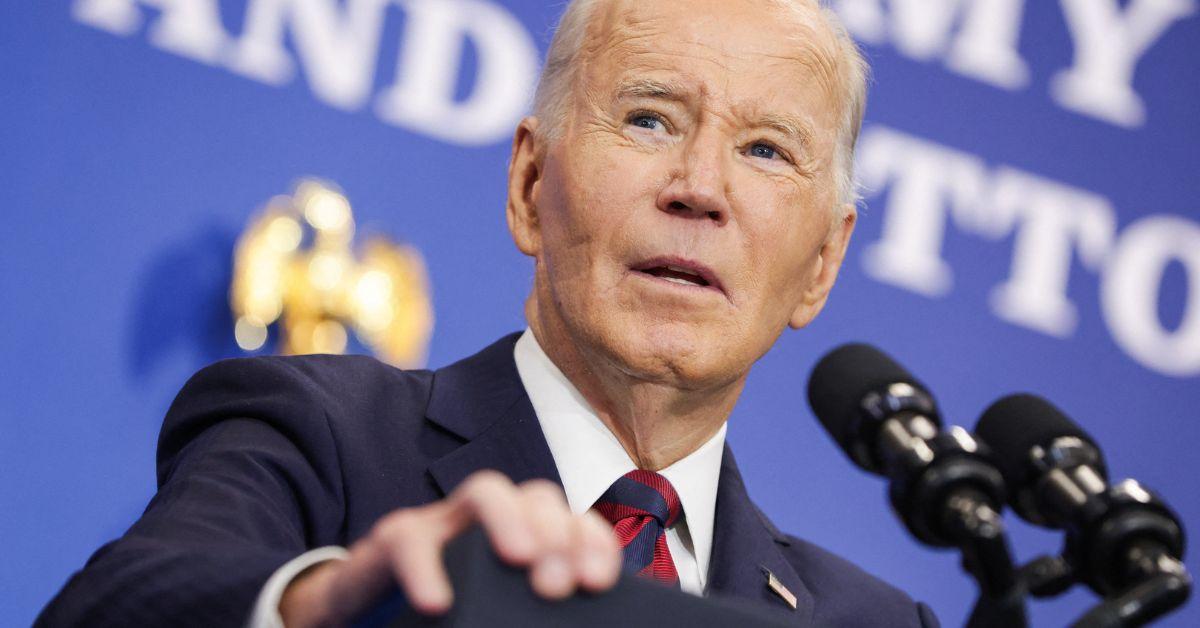Donald Trump's Racking Up $87,000 Per Day in Interest on $355 Million Judgment

Donald Trump's financial woes increase daily with interest in civil fraud judgement.
Feb. 21 2024, Published 4:00 p.m. ET
Donald Trump is on the hook for $87,000 per day in interest until he pays the $354 million fine in his New York civil fraud case, RadarOnline.com has learned.
Last week, Judge Arthur Engoron ordered Trump to pay the hefty fine plus $100 million in pre-judgment interest after he found the ex-president and his adult sons, Donald Jr. and Eric, falsely inflated his net worth to secure favorable loans for their company, the Trump Organization.

Trump was ordered to pay $355 million plus $100 million in pre-judgement interest in the civil fraud case.
In his ruling, Engoron ordered the ex-president to pay the pre-judgment interest on each gain, with interest accruing based on the date of each transaction. Additionally, the judge ordered Trump to pay 9% post-judgment interest upon the court entering judgment in the case.
While Trump has repeatedly denied all wrongdoing, claimed the trial was a political witch hunt and vowed to appeal the ruling, he will still need to fork over a substantial amount of money to appeal the judgement.

Trump has vowed to appeal the civil ruling.
Trump is required to put funds in an escrow account or secure a bond to appeal the verdict.
The amount the ex-president would be required to post or bond is set by the court. New York typically requires between 120 to 125 percent of the ruling, which includes post-judgment interest that would accrue during the appeal process, according to Politico.
Never miss a story — sign up for the RadarOnline.com newsletter to get your daily dose of dope. Daily. Breaking. Celebrity news. All free.

James brought the civil fraud lawsuit against Trump and his company.
Even if the ex-president can post funds or secure a bond needed to appeal the ruling, there's no guarantee that he'll win his appeal.
"If he ends up losing on appeal, Trump will have to pay both the pre-judgment and the post-judgment interest," University of Michigan business law professor Will Thomas told ABC News.
Trump's legal woes additionally threaten his assets.

Trump repeated the false classified documents claim during a town hall event in Greenville, South Carolina on Tuesday.
New York Attorney General Letitia James, who brought the civil case against Trump, announced the state is prepared to take additional legal action if the ex-president refuses to pay the fine.
"If he does not have funds to pay off the judgment. And then we will seek, you know, judgment enforcement mechanisms in court, and we will ask the judge to seize his assets," James explained in an interview with Aaron Katersky on ABC World News Tonight.
"Trump was held liable for exaggerating his wealth and inflating the value of his real estate, so banks would give him low-interest loans. Trump insisted the banks like doing business with him," Katersky asked James.
"They said no victim. No one got harmed. The banks got paid back. So no harm, no foul. Why is that not the case, in your view?"
James replied, "So financial frauds are not victimless crimes. He engaged in this massive amount of fraud! And it wasn’t just a simple mistake, a slight oversight, the variations wildly exaggerated, and the extent of the fraud was staggering."

Despite Trump's claims, the attorney general made it clear the state was prepared to seize one of Trump's properties if he doesn't come up with the funds to pay the fine.
"We are prepared to make sure that the judgment is paid to New Yorkers, and yes, I look at 40 Wall Street each and every day," James said.
Powered by RedCircle



